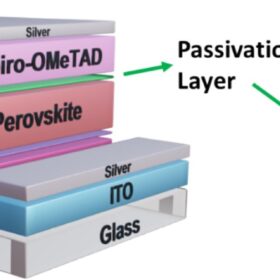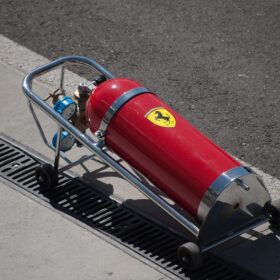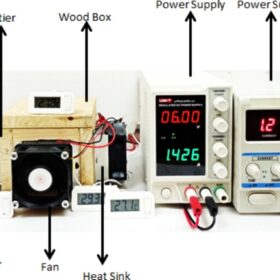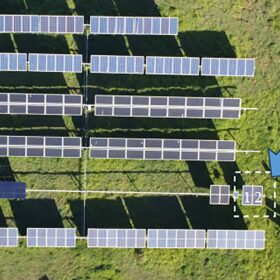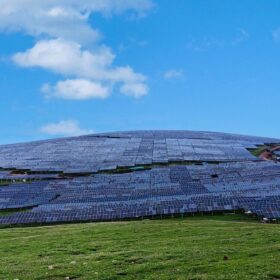Bluetti launches new ESS with up to 154.8kWh of storage
US-based Bluetti has developed a new energy storage system (ESS) that offers up to 154.8 kWh of storage and 60 kW of output by connecting up to three systems in parallel. It includes an inverter and a voltage controller with up to seven batteries.
New passivation strategy increases efficiency of chloride-iodide-based perovskite solar cells by 15%
Although local defects in chloride-iodide-based perovskite are hard to avoid due to ion migration, a group of scientists have now found a way to passivate them. They used different combinations of 4-chlorobenzylammonium chloride and 4-chlorobenzylammonium bromide beneath the hole transport layer and reached up to 15% improvement in efficiency.
PV Hardware presents solar tracker
The Spanish company said that its new tracker “is designed for maximum adaptability to any terrain.” It works with all PV modules.
Test bench for aboveground compressed air energy storage systems
Researchers in Canada have created an experimental workbench for aboveground compressed air energy storage. Experimental data calibration reportedly ensured model accuracy with a mean absolute percentage error below 4.0%.
Egyptian scientists build PV-powered mini fridge with thermoelectric cooling
Egyptian researchers have developed a mini refrigerator powered by one to four thermoelectric units at varying voltages. They simulated and tested the system under different conditions, achieving a maximum coefficient of performance (COP) of 77.3%.
Scientists assess heat dissipation factors in fixed, single-axis PV modules
Scientists have measured two fixed panels and two single-axis modules for months to determine their site-specific heat dissipation factors. These local results indicate a 3.3% enhancement in energy production compared to the default factors used in PVSyst.
Trina Solar supplies more than 1 GW of panels for project in China
Trina Solar says it has supplied more than 1 GW of Vertex N 720W series panels for the Jinsha River project in China, with installation expected by year-end. The project aims to generate about 5.1 TWh of power per year.
Scientists unveil results of full-year analysis on building-integrated photovoltaics
Scientists from Denmark have examined three façades installed on a mobile office container to conduct building-integrated PV experiments.
New model to assess performance of building-integrated photovoltaics based on PCM
Researchers in China have analyzed the effect of phase change material on BIPV, and created an artificial neural network to forecast its effect on system temperature. The proposed approach reportedly achieved superior predictive performance compared to earlier methods.
Multiple designs of photovoltaic-thermal collectors
Scientists have modeled eight different kinds of PVT systems, some with a glass covers and some without. They found the worst efficiency was achieved in uncovered systems with parallel round tubes.

